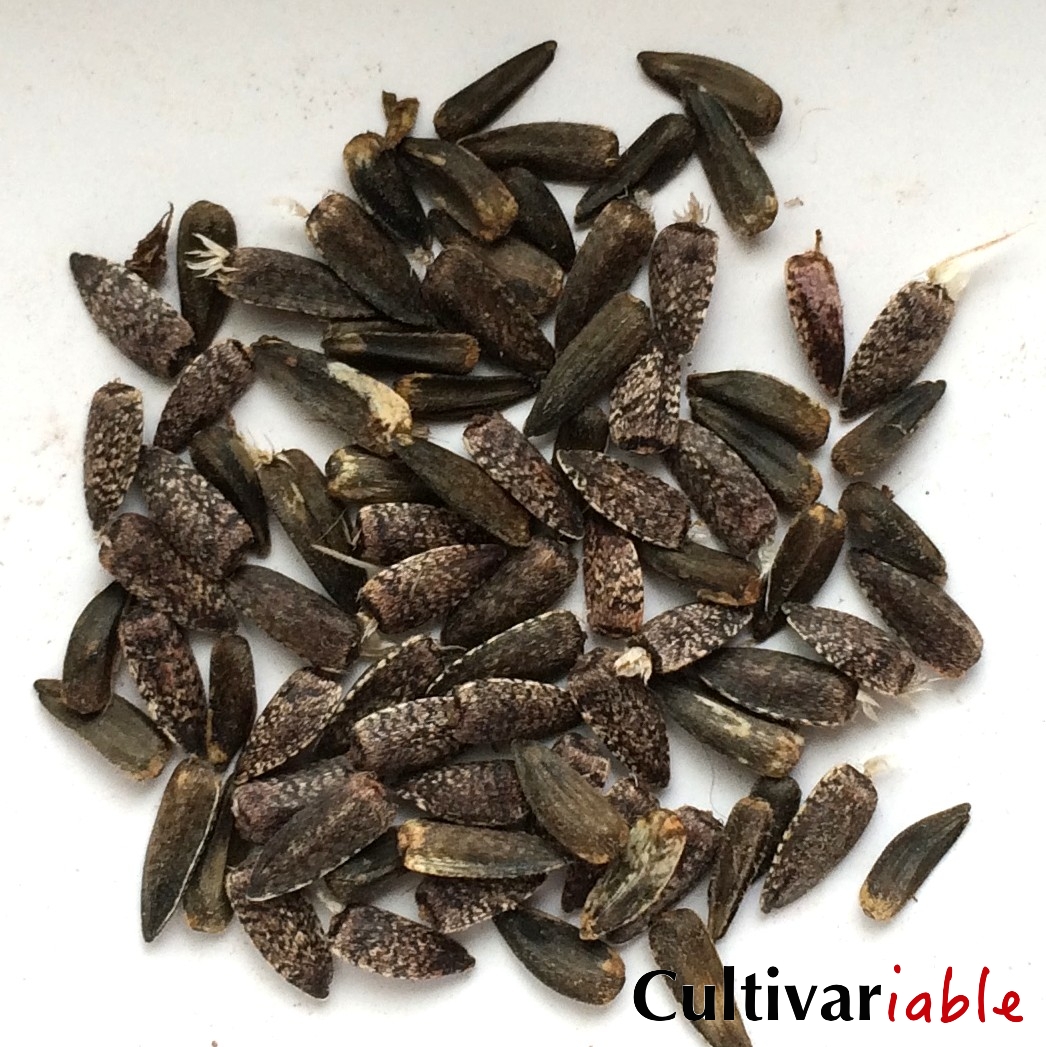No products in the cart.
| This product is not currently available. This catalog page is for reference only. |
Jerusalem artichoke varieties are grown from tubers, because the plants do not come true from seed. True seeds are used to produce new varieties, which are then propagated from tubers. It can be difficult to produce Jerusalem artichoke seeds due to self-incompatibility and length of season (most varieties flower fairly late in the year). We have a patch of Jerusalem artichokes that has been freely seeding for about a decade and in the past few years I have added new varieties grown from USDA accessions to increase genetic diversity. We can now offer this mix of seeds, which will be useful to the aspiring sunchoke breeder, as it will produce many plants that flower abundantly. Most seedlings tend to produce long, thin wild or primitive type tubers, but you will find some that produce larger tubers on occasion, more like the commercial types. Even if you don’t like the tubers, the seed grown plants are likely to be able to pollinate any other Jerusalem artichoke varieties that you may already have, enabling you to produce seed of your own. If you grow the seedlings in the ground in quart to gallon sized pots, they will not only be easier to harvest for evaluation, but will also be easier to control. Jerusalem artichoke can become very invasive if its growing area is not well contained.
Germination is typically about 50%.
| Availability |
|---|
Only logged in customers who have purchased this product may leave a review.


Reviews
There are no reviews yet.